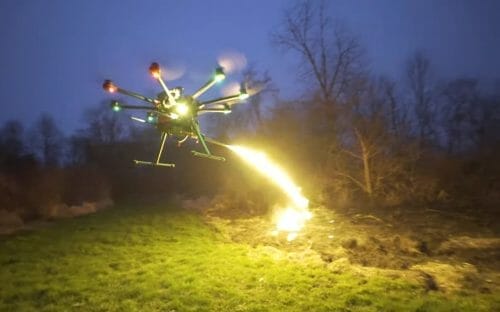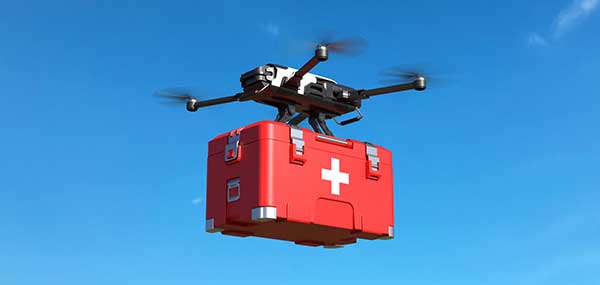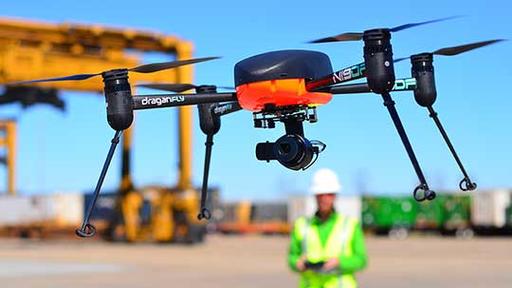If you’re wondering if you’re going to lose your job to the invisible forces of mechanization in the next twenty years, then you need to look at what’s going on in Dubai. If they’ve found a way to automate your position then it might be time to pivot to one of the other careers that artificial intelligence won’t be able to take over.
Like maybe being a zumba teacher.

If you’re thinking about becoming a cop, though, you might want to think again.
The police force over in Dubai just selected Draganfly (DFLY.C) to pilot their new policing drone initiatives.
The Unmanned Aerial Systems Center (UASC) aspect of the General Department of Operations for the Dubai Police force has been given a mandate to keep themselves out front of any unmanned aerial systems. If this initiative takes off and other cities around the world take notice, then we may see a cost-effective way for cities to police their populations.
Having drones zipping overhead, providing visual surveillance on the people is likely only the start. This won’t be replacing the grizzled homicide detective trope seen so often on NBC’s weekly lineup, at least for right now, but it might be enough to supplant the average police officer, waiting on the traffic stop with his speed meter.
Dubai’s force already has an artificial intelligence strategy in place, including what they call Smart Police Stations, which operate devoid of human intervention 24 hours a day, seven days a week, and offer 27 key services ranging from reporting crimes and traffic incidents to community based services like obtaining good-conduct certificates to social support for victims of family violence.
Here’s Kamal Butti Al Suwaidi, Major General Engineer and the director of the General Department of Operations for the Dubai Police,
“We are pleased to have selected Draganfly to work with the Dubai Police to help improve operational effectiveness, efficiency, and productivity within the various General Departments of the Dubai Police because Draganfly can meet our mandate in developing technology to improve the well being of our society and operational effectiveness in overall public safety. In addition, the strength and knowledge of the Draganfly team aligns perfectly with our ongoing innovation strategies making them the perfect partner to develop these important technology solutions.”
Listen to the adjectives in the quote above—operational effectiveness, efficiency and productivity. The police have been called plenty of things, but those three adjectives generally aren’t among them. They could be included by reducing the human in the equation and automating a lot of standard functions like parking tickets for minor infractions could mean more efficiency in terms of the quotidian aspects of policing.
But the thousand dollar question really is whether this bodes well for the future of policing. The answer is probably not.
Given all the underhanded bullshit going on with our traditional conceptions of policing—what with the random racist murders in the United States and the outright ignoring of missing indigenous women in Canada—it might not be a bad idea to at least threaten to replace the bad apples with Robocop, or maybe drone-o-cop, or some variation on the theme.
Ultimately, that won’t solve the underlying problem.
Computers only perform the actions indicated by their code, and code is a reflection of the prejudices of the coder, therefore the machines themselves will behave in fashions corresponding to the prejudices of the coder. If cops are given undue influence in the way the coder programs the drones, then instead of the direct in-your-face kind of prejudice that marginalized people faced with dealing with cops today have to endure, it’ll be an automated variety, like Robocop with a white hood or an autodialer with the ability to take away your driver’s license.
Now factor in that the police is the arm of the state in terms of the use of force.
No context. No explanation. Just automatic.
But we might be getting the cart in front of the horse on this one. What this represents right now is an excellent investment in a burgeoning technology that should it get the Dubai seal of approval, could find its way overseas to our neighbourhood. If it does, you can guarantee that the people who bought in today when it closed at $0.66 will be glad they did.
—Joseph Morton







